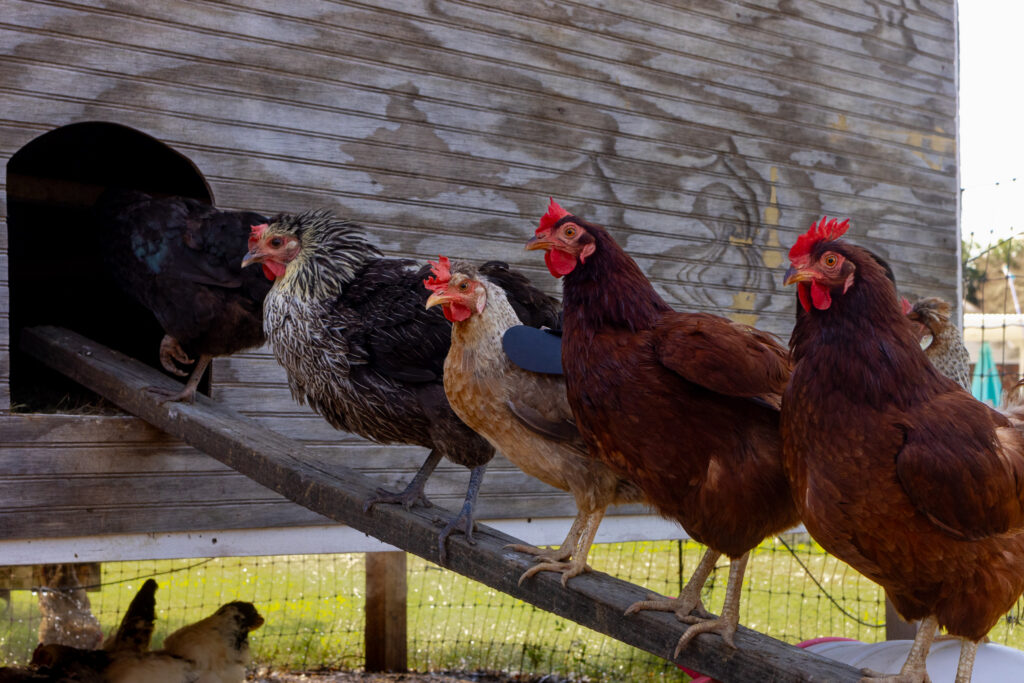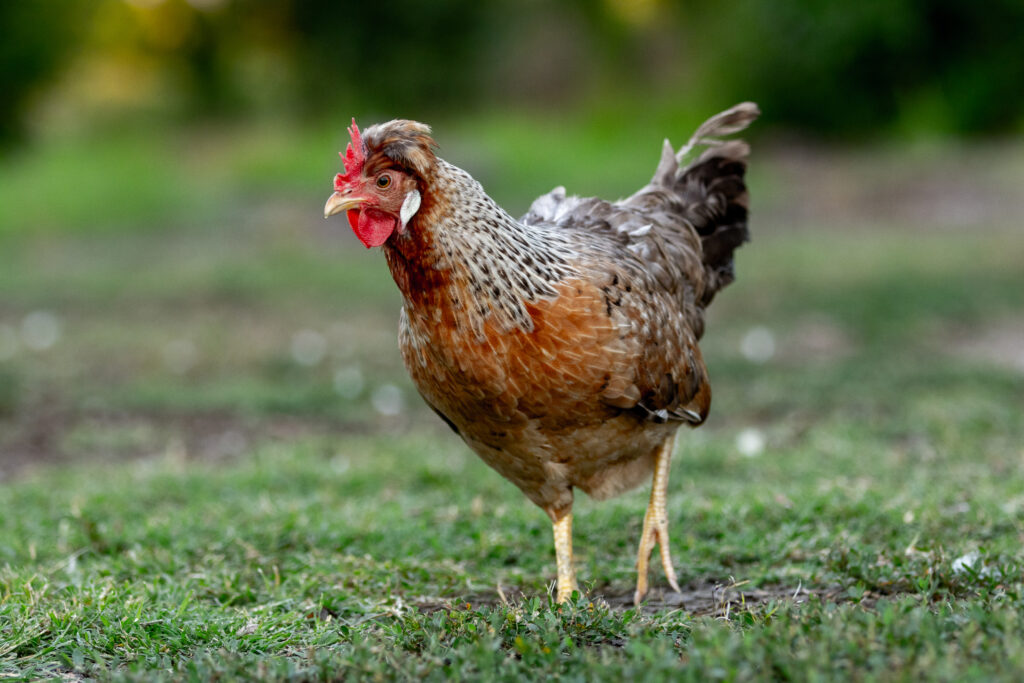Discover 13 crucial tips for starting your backyard chicken coop in 2024. Learn about coop design, chicken care, and legal considerations for successful urban farming.

Ready to embark on your backyard chicken adventure?
You’re not alone!
Urban chicken keeping has surged in popularity, with a 400% increase in backyard coops since 2020. Whether you’re dreaming of farm-fresh eggs or seeking a unique pet, starting your own chicken coop can be a rewarding experience.
Here’s 13 essential tips to ensure your feathered friends thrive in their new home!
Planning Your Coop: Location and Design
Let’s kick things off with the most crucial part of your chicken-keeping adventure: the coop! Trust me, getting this right will make your life (and your chickens’ lives) so much easier. First things first, finding that perfect spot! Look for a well-drained area that’s partially shaded. Why? Because chickens love a bit of sun, but they also need a cool retreat during those scorching summer days. And well-drained because water, dirt, and chicken droppings make for a bad day.
Now, here’s a golden rule: give your chickens space to spread their wings! Aim for at least 4 square feet of indoor space per chicken. It might seem like a lot, but believe me, cramped chickens are not happy chickens. And happy chickens lay more eggs!
Speaking of eggs, you’ll be collecting a lot of them. But you’ll also be dealing with, well, chicken poop. Lots of it! That’s why you need to design your coop with easy cleaning in mind. Trust me on this one – your future self will thank you. Consider installing removable dropping trays. They’re a game-changer when it comes to keeping your coop fresh and tidy.
Oh, and don’t forget about ventilation! It’s absolutely crucial. Without proper airflow, moisture builds up, and that’s a recipe for disaster. Think stinky coop, unhealthy chickens, and a very unhappy you. So, make sure your coop design includes plenty of ventilation options.
Essential Features for a Happy Chicken Home

Alright, now that we’ve got the basics down, let’s talk about turning your coop into a chicken paradise. First up: nesting boxes. These are like little maternity suites for your hens. You’ll want to install one nesting box for every 3-4 hens. Trust me, they’ll appreciate the privacy when it’s time to lay those golden eggs! But don’t be surprised if you find ALL of your hens trying to use the same nesting box.
Next on the list: roosting bars. These are basically the chicken equivalent of a comfy bed. And I can assure you, you want them sleeping on the roosting bars, not the nesting boxes. Then we’re having to deal with dirty eggs. Make sure the bars are at least 2 inches wide. Why? Because chickens like to sleep with their feet flat, not gripping a narrow perch. It’s all about that chicken comfort!
Now, here’s something you might not know: chickens love to bathe. In dust! I know, it sounds counterintuitive, but a dust bath is a chicken’s way of staying clean and parasite-free. So, be a good chicken parent and create a dedicated dust bathing area. Your chickens will go crazy for it! Plus, it’s pretty entertaining to watch.
Last but definitely not least, let’s talk about food and water. Set up a dedicated station that’s easy for you to refill and clean. Trust me, you don’t want to be wrestling with complicated feeders and waterers every day. Keep it simple, keep it accessible, so your chickens stay full and hydrated, and YOU aren’t getting frustrated.
Protecting Your Flock from Predators

Listen up, because this is important: predators are a real threat to your backyard flock. But don’t worry, I’ve got some tricks up my sleeve to keep your chickens safe and sound. First off, forget about chicken wire. I know, I know, it’s called “chicken wire” for a reason. But trust me, it’s not strong enough to keep determined predators out. Instead, use hardware cloth. It’s much sturdier and will give you peace of mind.
Now, here’s a sneaky trick: bury your fencing at least 6 inches deep and at extending about a foot away from the coop. Why? Because some predators, like foxes and raccoons, are clever diggers. But they will typically dig up close to the fence, which means they will dig down into your hardware cloth (are you are using hardware cloth… right?)
Smart, right?
Here’s another game-changer: automatic coop doors. These nifty devices close at sunset and open at sunrise, ensuring your chickens are safely locked up at night when most predators are on the prowl. It’s like having a chicken security guard that never sleeps!
And for an extra layer of protection, consider installing motion-activated lights around your coop. These will startle nocturnal predators and might even alert you to any nighttime shenanigans. Plus, they’ll make those early morning egg collections a lot easier for you! But if the lights just aren’t cutting it, I have 3 words for you:
Motion Activated Sprinkler
Choosing the Right Chickens for Your Coop

Okay, now for the fun part – choosing your chickens! But hold your horses (or should I say, hold your hens?), because there’s more to it than just picking the prettiest birds. First, you need to do your homework on chicken breeds. Some are better suited for cold climates, others for hot. Some are champion egg-layers, while others are more ornamental. Think about what you want from your flock and choose accordingly.
Here’s a pro tip: start with pullets. These are young hens that are about to start laying eggs. They’re easier to care for than chicks and will start providing you with breakfast much sooner. Win-win!
Now, before you get carried away and create a chicken metropolis in your backyard, check your local regulations. Many areas have limits on flock size, or whether or not you can have a rooster, especially in more urban settings. And while we’re on the subject of urban chicken keeping, consider your neighbors. Some chicken breeds are noisier than others, so if you’ve got close neighbors, you might want to opt for the quieter varieties. Trust me, maintaining good neighborly relations is key to a stress-free chicken-keeping experience!
Maintaining Chicken Health and Hygiene
Let’s talk chicken health, because a healthy flock is a happy flock! First things first: cleanliness is next to chickliness. (Okay, I made that word up, but you get the idea!) Set up a regular cleaning schedule and stick to it. It’s not the most glamorous part of chicken keeping, but it’s essential for preventing disease.
Now, onto chicken chow. Your feathered friends need a balanced diet to stay healthy and keep laying those delicious eggs. Provide them with a good quality layer feed, and don’t forget the calcium supplements. Eggshells are made of calcium, after all!
Here’s something many newbie chicken keepers overlook: a quarantine area. Trust me, you’ll thank me for this tip later. Whenever you introduce new chickens to your flock, or if one of your birds gets sick or injured, you’ll need a separate space to keep them. It’s like a chicken isolation ward, preventing the spread of any potential diseases, as well as not allowing the other chickens to further injure your poor bird. As gruesome as it sounds, if chickens see an open wound on another bird, they will try to pick at it and essentially cannibalize their injured friend. Please don’t let that happen! We all know how delicious chicken tastes, don’t let them figure it out too.
Ok, I’m ready to come out of this darkness, let’s change the topic.
Last bit of advice on chicken health. Become a chicken health detective. Learn how to do basic health checks on your birds. Look for signs of illness or injury, and find a good poultry veterinarian in your area. Because let’s face it, at some point, you’re going to need one. It’s all part of the chicken-keeping adventure!
That is, if you decide to go that route. There will be no judgements here if taking a chicken to the vet is not your cup of tea, there are certainly other delicious options available.
Navigating Legal and Community Considerations

Alright, let’s get down to the nitty-gritty of chicken keeping: the legal stuff. I touched on this briefly and I know, I know, it’s not as exciting as choosing cute chicken breeds or designing your coop, but trust me, it’s crucial. Before you even think about bringing home your first chicken, check your local zoning laws and HOA rules. Some areas have strict regulations about keeping backyard chickens, and the last thing you want is to fall in love with your flock only to find out they’re not allowed!
Once you’ve confirmed that chickens are welcome in your neck of the woods, you might need to obtain permits or licenses. I know, more paperwork, but it’s worth it to keep everything above board. Plus, it’s a great opportunity to learn more about responsible urban farming practices.
Now, here’s a step that many chicken enthusiasts overlook: talk to your neighbors. Yes, really! Let them know about your plans to keep chickens. Educate them about the benefits of backyard flocks and address any concerns they might have. Who knows? You might even inspire them to start their own coop!
Finally, don’t go it alone. Join local chicken-keeping groups or online forums. These communities are goldmines of information and support. Plus, it’s always fun to swap chicken stories with fellow enthusiasts. You might even find yourself swapping eggs or chicks down the line!
Remember, successful chicken keeping is all about being a good neighbor and a responsible urban farmer. With these tips in your back pocket, you’re well on your way to becoming the chicken whisperer of your neighborhood!
Conclusion

Starting your backyard chicken coop is an exciting journey that combines sustainability, education, and the joy of fresh eggs. By following these 13 essential tips, you’ll be well on your way to creating a safe, comfortable home for your feathered friends. Remember, successful chicken keeping is a continuous learning process – embrace the adventure and enjoy the rewards of your very own backyard flock!